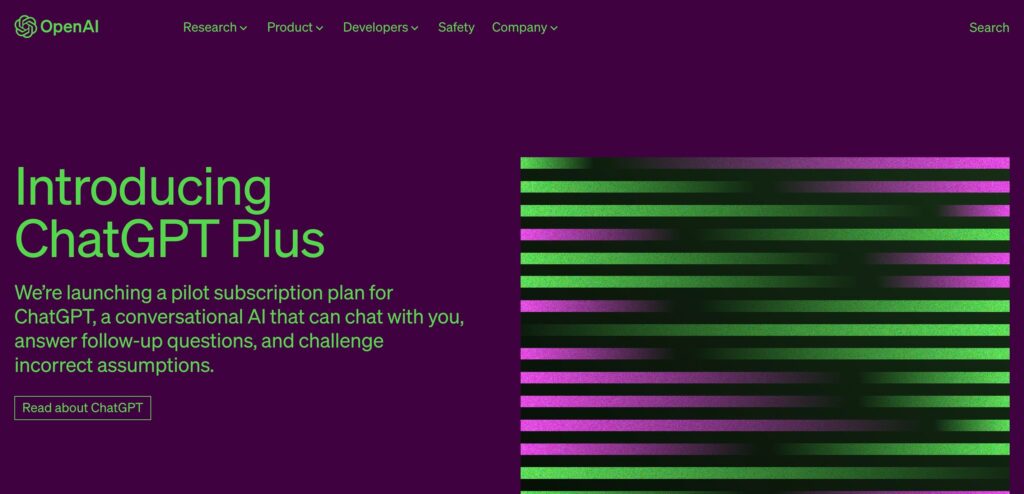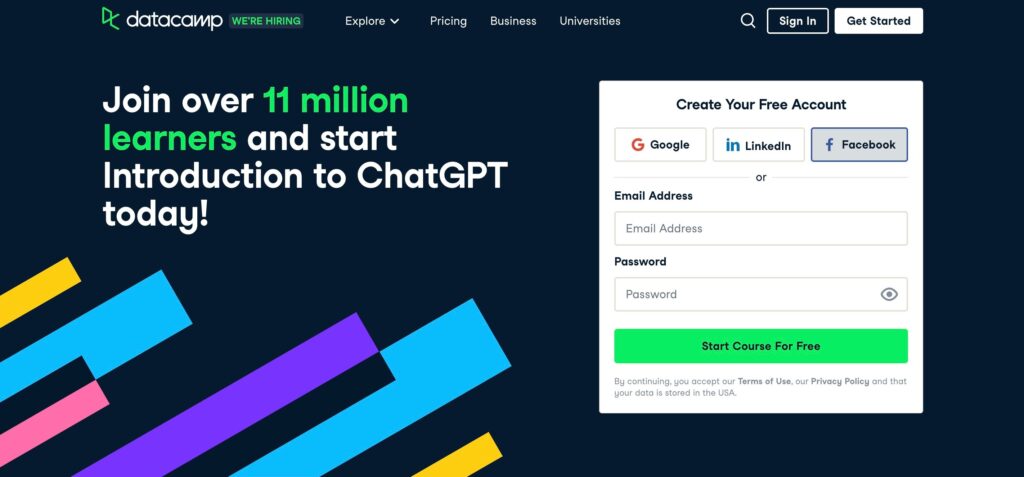
In this article, we’re going to be looking at the future of white-collar work in the age of AI. We're going to examine which jobs are most likely to be affected, where new opportunities may arise, and what you can do to stay ahead of the game.
AI is already changing the world of white-collar work, leaving many people wondering if AI is going to eventually come for their jobs too. Well… it probably is.
While the prospect of being replaced by artificial intelligence sounds scary, for those who learn to work with it, the benefits of working in harmony with AI could actually make the white-collar workplace a much better place to be. By embracing this new technology and learning how to work with it, you can potentially future-proof your job or perhaps even carve out a brand new role in your workplace.
What Does the Future Hold for White-Collar Work in the Age of AI?
White-collar jobs are likely to come across some significant changes in the next few years. If your job involves writing, performing repetitive tasks, or analyzing data, then it’s likely that a large part of your job could also be done by AI.
Sadly this rise in automation means that there will inevitably be layoffs. This is because one person may be able to complete the work of three or four people with the help of AI.
That being said, there is also likely to be an increase in demand for other skills—data scientists and AI developers, as well as the skills that can’t be done by AI, such as jobs that require a degree of emotional intelligence and creative thinking.
Embracing AI technology will also provide new opportunities and ways of working for entrepreneurs, freelancers, and other independent contractors, allowing them to grow and scale their businesses more quickly.
So if you’re looking to stay at the top of your game, it’s essential that you embrace AI and even learn to adapt the way you work.
According to the Future of Jobs report by the WEF: “Nearly a quarter of all jobs (23%) globally will change in the next five years. Across 45 economies, covering 673 million workers, 69 million new jobs are expected to be created and 83 million to be eliminated, a net decrease of 14 million jobs, or 2% of current employment.”
So if you’re unwilling to adapt, you may get left behind.
Which Jobs Will Be Affected

When you consider the skills needed to carry out many white-collar jobs, it’s easy to see why there may be a worry that AI technology could take over. AI technology is great at repeating tasks, predicting what will happen, and even planning what to do next—all of which are essential skills to carry out lots of white-collar job roles.
The world of digital marketing and content writing is most definitely being affected by AI technology.
Take a look at tools like Jasper, for example.
Jasper can produce a unique blog article in seconds—with grammatically correct English and zero plagiarism, even matching your brand voice and optimized for search. This has instantly put many of the lower-quality ‘content mill’ style writers out of business.
Jasper can also write things like:
- Product descriptions
- Emails
- Letters
- Creative stories
- Headlines
- Ads
- Job descriptions
- Social media captions
And a wide variety of other text-based content. It’s easy to see why writers, content creators, and social media managers would be worried about being replaced.
Again, this is because the use of AI could help one writer produce a volume of work that would have previously taken three or four writers the same amount of time to produce.
Other Jobs That Could Be Replaced by Automation
There are plenty of other jobs that once seemed secure that are changing drastically, too, thanks to AI. Most of these involve repetitive tasks, research, and analysis. These jobs include:
- Legal research
- Finance
- Accounting
- Inventory management
- Data entry and analysis
- Document processing
- Customer service
However, if your job requires a combination of technical and soft skills, such as in medicine, or customer service, it’s more likely that the way you work will simply change rather than disappear altogether.
It’s also worth noting that humans will still need to prompt and monitor AI. So in many cases, AI will simply speed up the way you work. It will enable you to work more efficiently and get more done in one day than you could otherwise. This could have huge benefits in certain sectors—perhaps even leading to shorter work days in industries that are notoriously overworked, like law, for example.
The Benefits of AI in White Collar Work
Any change in the way an industry works is going to come with its pros and cons, and AI in white-collar work is no exception. Some of the benefits that industries can look forward to include:
- Efficiency. There is no denying that AI can work quicker than humans can on many tasks. Not only that, but AI does not get ill, take breaks, or need to slow down because it is tired. The introduction of AI into white-collar industries could help improve efficiency overall.
- Accuracy. AI doesn’t work on emotions or opinions but instead on a stringent set of instructions. This means you can be sure the work it is carrying out is accurate. For example, in the medical field, the use of AI could literally save lives when it comes to cancer detection and analysis. We have even seen AI outperform human experts for accuracy in breast cancer screenings. It reduced the risk of false positives and false negatives by a substantial amount.
- Data Analysis. As an AI system records and tracks every task it carries out, you have easy access to all data. This allows you to analyze quickly and easily how things are working and recognize areas where changes may need to be made.
- Cost Saving. For employers in white-collar industries, the cost savings could be huge. Of course, there will need to be an initial investment into AI technology. However, the running costs, in general, are much less per year than the cost of employing a team of people.
The Disadvantages of AI in White Collar Work
Of course, along with the benefits also come the disadvantages:
- Employment figures. As AI technology takes over and becomes more efficient, it could lead to job loss and fewer employment opportunities across various industries.
- Security Risks. AI technology is able to hold and process large amounts of data. There are some worries that any security breach or data risk could lead to this data being used in the wrong way.
- Loss of Skills. AI technology is great, but many worry about the loss of real workers’ experience. A reliance on AI technology could lead to fewer people having the necessary skills to step in and take over if needed.
- Loss of Tax Revenue. White collar jobs are typically well paid, and therefore workers in these jobs are contributing a fair amount to the economy in taxes and spending. If too many white-collar jobs are replaced by AI, it could potentially rock the economy.
- Accountability. Who is to blame when mistakes are made, or misinformation is spread? You can’t prosecute a machine.
The Things AI Can’t Replace
As with everything, AI has its limitations. For example, AI can’t replace genuine care or emotions. Human contact is important, even in the workplace. And it is unlikely AI will ever be able to replace your personality.
Certain jobs are always likely to be safe, even in the age of AI. These include:
- Creative Jobs. Jobs that involve a large amount of originality and creativity, such as artists and designers, are unlikely to be replaced by AI.
- Healthcare. Doctors, nurses, and healthcare assistants are unlikely to be replaced by AI. These jobs all require a level of critical thinking, empathy, and personal interaction that AI can’t replicate.
- Education and Childcare. Decision-making and empathy are an important part of education, particularly in the early years.
- Entrepreneurship. There will always be a place in the world for innovative entrepreneurs.
- Sales and Marketing. These jobs require higher interpersonal skills that are unlikely ever to be replaced by AI.
While these jobs are unlikely to be completely replaced by AI, AI can still be used in all of these jobs to make life easier. Creating a better work-life balance, for example.
Overall, there will still need to be a balance between humans and AI. Workplaces with too much AI technology and not enough real-life thought and feeling could find that they struggle long-term.
New Opportunities for White Collar Workers
There is no denying that AI, in some shape or form, is coming to most industries. Instead of closing your eyes and hoping for the best, it’s a great time for white-collar workers to look at new opportunities and embrace the change.
There will also be some new job creation for those who do eventually lose their jobs to AI. For example, in data science, AI development, and prompt engineering.
So, how can you future-proof your job?
Embracing AI in the Workplace

Whether you’re for it or against it, AI is here to stay. If you try to fight it, you run the risk of being left behind.
Instead, the best thing you can do is embrace it, learn what you can about it, and be involved. For example, someone in the workplace will need to be in charge of monitoring the technology, making sure it is staying on track and doing what it should.
By being at the forefront of the introduction of this technology into the industry, that could be you. Learning to use AI will give you a strong competitive advantage over other candidates competing for the same job.
For example, business owners and marketers can start learning how to use ChatGPT for email marketing to streamline their workload. And if you’re a content creator, you can also learn how to use ChatGPT to write a blog post, which can save you hours of time, enabling you to produce up to 5 x the amount of content you would be able to create without AI in the same amount of time.
Learning New Skills

One thing that is great about changing technology is that there is always something new to learn. Not only that, but if we allow AI technology to carry out day-to-day admin tasks, this allows the workforce to have more time to concentrate on other tasks and learn new skills.
Instead of waiting for your employer to provide training in this area, it could be worth taking the initiative to upskill on your own, positioning yourself as an asset to the company you are part of.
Mastering Generative AI tools like ChatGPT is a great place to start. ChatGPT is one of the easiest AI tools to get to grips with. And best of all, it’s free!
If you’re looking for a course to guide you, try Introduction to ChatGPT by Datacamp. This free course will teach you how to get the best out of ChatGPT and show you how it can be used in a variety of different business cases.
Being able to efficiently use AI as part of your job could help you to do your job better and faster. This would result in a higher output or a shorter work day—thus creating a better work-life balance for you.
A Better Environment for White Collar Workers in the Age of AI
Overall, embracing AI can create a better working environment with a higher output, fewer mistakes, and perhaps even shorter work days. Those who are able to adapt and learn quickly will thrive in the age of AI, while those resisting it may eventually find themselves made redundant.
So if you're a white collar worker and you think your job has the potential to be replaced by AI… It probably will be at some point. You either need to adapt to the changes and make yourself irreplaceable or look at new job opportunities in the world of AI.
Don’t put all your eggs in one basket, either. If your job is at risk of being replaced by AI in the future, maybe it’s time to learn new skills or even start a side hustle.
Check out our post on great ways to make extra money to get started today.
The post The Future of White-Collar Work in the Age of AI: Your Survival Guide appeared first on Niche Pursuits.

